Can Post-Concussion Syndrome Cause Stuttering?
Many people associate stuttering with childhood, but a sudden onset of stuttering can also occur after a head injury. This phenomenon, known as acquired stuttering, is one of many symptoms that can...
Published peer-reviewed research shows that Cognitive FX treatment leads to meaningful symptom reduction in post-concussion symptoms for 77% of study participants. Cognitive FX is the only PCS clinic with third-party validated treatment outcomes.
READ FULL STUDY
If you’re constantly struggling to find the right words to finish a sentence or express your ideas clearly in a conversation, it’s easy to become frustrated and angry.
Language and speech problems are common symptoms of post-concussion syndrome (PCS). In addition to headaches, drowsiness, and feeling as though you’re in a fog, you may find it challenging to find the words you want to say, interact with others, and pay attention to conversations around you.
At Cognitive FX, speech-language pathologists are an essential part of the team that treats patients suffering from post-concussion syndrome. Our therapists are not only trained in treating speech, language, swallowing, and voice disorders, but here at Cognitive FX, they specialize in treating cognitive deficits, such as difficulty thinking quickly or feeling like your brain is tired even after brief periods of concentration.
We know these language and communication deficits are challenging to live with and can have severe consequences for your quality of life. As such, our primary goal is to promote cognitive rehabilitation and improve your communication skills. We work with every patient to identify main areas of difficulty and devise a treatment plan so you can heal. After treatment, patients often express to us how helpful speech therapy was for their recovery.
In this article, we’ll look in detail at how speech therapy is useful to treat post-concussion syndrome:
If you’re experiencing concussion symptoms that won’t resolve after three months, you’re not alone. And you’re not crazy. On average, our patients improve by 75% after treatment at our center specializing in post-concussion therapy. To see if you are eligible for treatment, sign up for a consultation.
Note: Any data relating to brain function mentioned in this post is from our first generation fNCI scans. Gen 1 scans compared activation in various regions of the brain with a control database of healthy brains. Our clinic is now rolling out second-generation fNCI which looks both at the activation of individual brain regions and at the connections between brain regions. Results are interpreted and reported differently for Gen 2 than for Gen 1; reports will not look the same if you come into the clinic for treatment.

Many people think speech therapy is only for children with speech disorders that affect pronunciation. However, according to the American Speech-Language Hearing Association (ASHA), speech therapists — or more correctly, speech-language pathologists (SLPs) — can treat various symptoms related to speech, communication, and language, many of which affect patients with a brain injury. These include, for example, difficulties with speaking, understanding language, memory, stuttering, and word retrieval. Specialists in speech-language pathology are becoming increasingly more involved in the assessment and treatment of mild traumatic brain injuries (mTBI).
Cognitive-communicative deficits are the most common communication problems caused by a brain injury, involving cognitive skills such as memory, concentration, reasoning, and problem-solving skills. For this reason, SLPs are referred to as cognitive therapists at Cognitive FX.
PCS patients often have trouble participating in conversations, as they struggle to pay attention, follow the conversation, and answer in time. They might also have difficulties remembering past conversations, and these impairments can affect their ability to make decisions. These patients sometimes have trouble with social communication and struggle to behave in a socially accepted manner; they might lack filters and speak without regard for the feelings of others.
Others find humor and sarcasm difficult to understand because they fail to spot subtle nuances in the conversation or take things too literally. Similarly, patients may not realize when it’s their turn to talk in a conversation, or they may become overly talkative to ensure they don’t forget what they want to say.
Other neurological symptoms include headaches and tiredness after a period of concentration, poor processing speed, difficulty thinking quickly and effectively, and difficulty organizing what needs to be done throughout the day.
Often, symptoms get worse in busy or loud settings or when talking to more than one person. It’s very easy for PCS patients to become overloaded with information and then switch off or get frustrated.
Language problems are also common after a head injury. These are not caused by cognitive deficits but are caused by damage to specific areas in the brain (see next section for more detailed information).
Many patients have a hard time following a conversation or finding the “right” words to complete their thoughts. We often hear our patients explain that they can be midway through a sentence, and suddenly, they have no idea what word they were going to say next. This condition is known as aphasia, and it occurs mainly when the person is tired or in a crowded or loud environment.
Aphasia does not affect thinking skills, but patients may struggle with handwriting and understanding written material, as well as using numbers or doing simple calculations.
This also affects patients who are fluent in more than one language. After a brain injury, these patients find it difficult to switch between different languages. We’ve seen this in patients from other countries. They say that, after a week of speaking mainly English, it’s tough to switch back to their original language.
The constant struggle to find the right word or having to resort to lengthy descriptions for a simple word can be very challenging. In fact, a 2010 study involving over 66,000 people looking at the impact of 75 different diseases found that language difficulties had the largest negative impact on quality of life — surprisingly, even more than cancer and Alzheimer’s disease.
Physical problems with speech are less common than cognitive or language issues, but they can happen. For example, a person with a traumatic brain injury (TBI) may talk in a slurred or muffled way, making them difficult to understand. Frustratingly, these patients know exactly what they want to say but struggle to pronounce the words clearly. Due to limited control over the muscles used to speak, individuals can also struggle with chewing and swallowing.
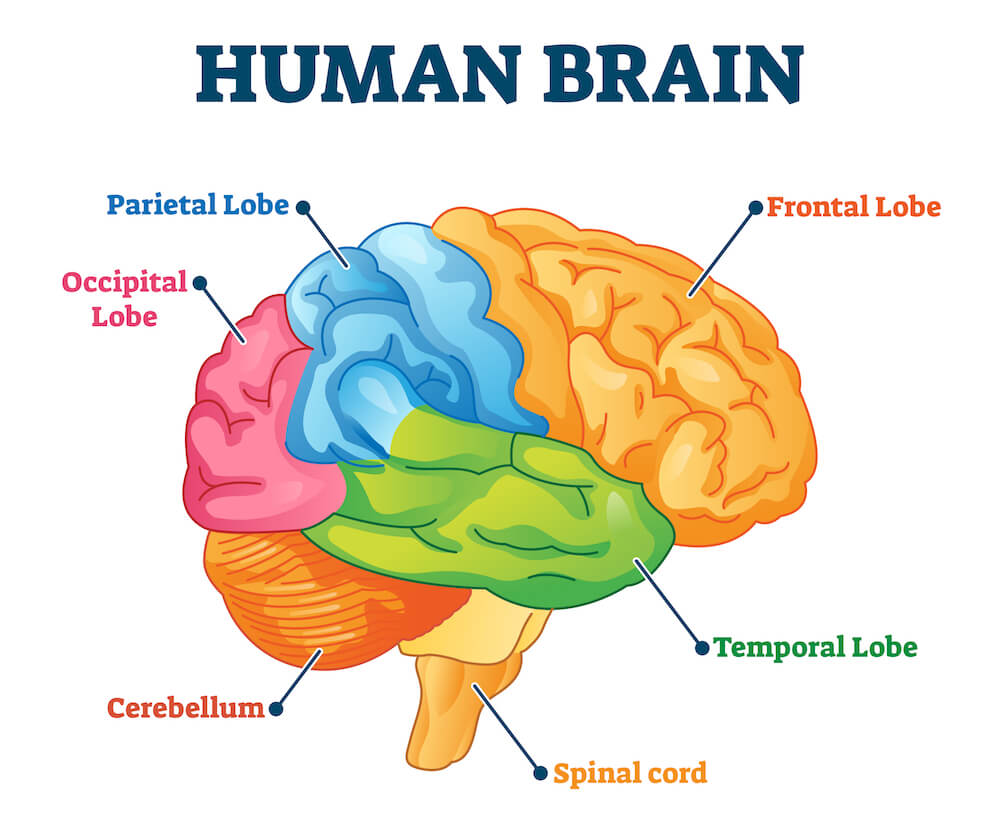 Talking involves many different processes, from putting thoughts into words, forming a sentence, following correct grammatical rules, and then actually making the vocal cords, mouth, and tongue move to make the correct sounds. This is a complex process, and there are many areas of the brain that play a role in speech.
Talking involves many different processes, from putting thoughts into words, forming a sentence, following correct grammatical rules, and then actually making the vocal cords, mouth, and tongue move to make the correct sounds. This is a complex process, and there are many areas of the brain that play a role in speech.
Not surprisingly, if brain injuries occur in any of these areas, the effects of concussion may include language and communication problems:
Broca’s area in the frontal lobe is involved in converting your thoughts into actual words. This area also helps transmit information to other parts of your brain that control the movements of your mouth. If this area is damaged, patients can understand what is being said but cannot speak fluently because the brain is having trouble communicating efficiently to all the muscles needed to form words. This is known as Broca’s aphasia.
A second area required to understand and process speech and written language is the Wernicke’s area in the temporal lobe. This area helps you understand different concepts and relate them to different words. If this area is damaged, the consequence is the opposite of Broca’s aphasia: patients can speak, but they struggle to understand words. They talk with a seemingly regular rhythm, but many of the words don’t make sense. This is known as Wernicke’s aphasia.
The frontal and temporal lobes are also involved in regulating cognitive-communication skills. For example, executive functions such as planning, organizing, and social behavior are located primarily in the frontal lobe, whereas the temporal lobe is responsible for storing memories and understanding speech.
Finally, the cerebellum and the motor cortex are also involved in coordinating muscle movements to open and close your mouth to actually produce a sound. For example, the cerebellum controls which muscles in the face are active and which are relaxed, and the motor cortex transmits information from Broca’s area to the mouth, tongue, and lips to form speech. If either of these areas is dysfunctional, patients may speak at a slower rate or with distorted sounds, slurred speech, and have to move the lips and tongue a few times before speaking.
These are just some examples of the type of cognitive-communicative disorders that may arise from a brain injury. In practical terms, it’s rare that concussions only hit a very localized area in the brain and give patients specific symptoms. More commonly, these injuries have a more diffuse effect and have an impact on multiple regions of the brain, giving patients a wide range of symptoms.
In addition, the areas in the brain’s language center operate in a coordinated network, with some parts involved in different functions and a certain level of redundancy in some processing pathways.
This means each brain injury is different, and it’s virtually impossible to determine what areas were affected based solely on the resultant symptoms.
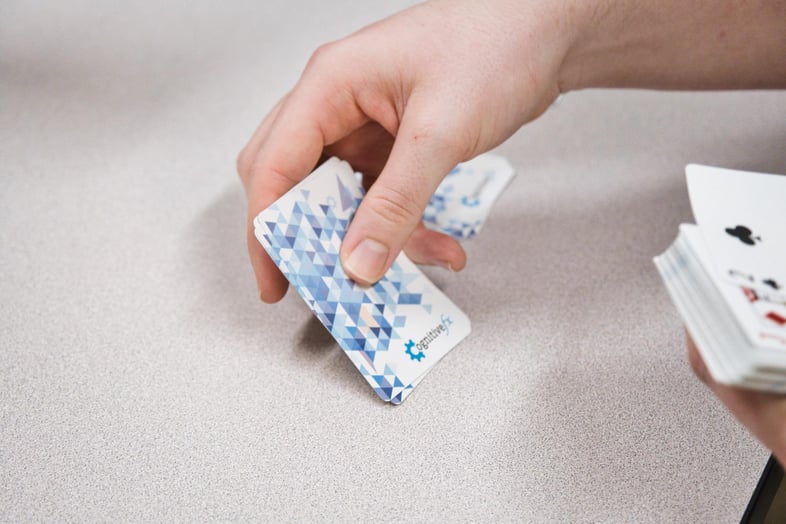
Commonly, most medical services tend to treat these patients by helping them develop compensatory strategies to cope with the symptoms and deficits, such as heavily relying on written notes to remember things, or encouraging patients to only use short sentences.
Although this type of concussion management may be helpful for the most severe cases, allowing patients to communicate with others and carry out daily tasks, it does not address the root of the problem — the dysfunction in the brain caused by the concussion — in patients with only mild symptoms.
At Cognitive FX, we do things a little differently. We aim to treat and actively rehabilitate the parts of the brain that have been injured. For each patient, this process starts with a functional Neurocognitive Imaging (fNCI) scan.
This special type of scan permits us to identify which areas in the brain were affected by the concussion. This includes a detailed view of the temporal and frontal lobes, which are particularly useful if the patient is experiencing any kind of language issues.
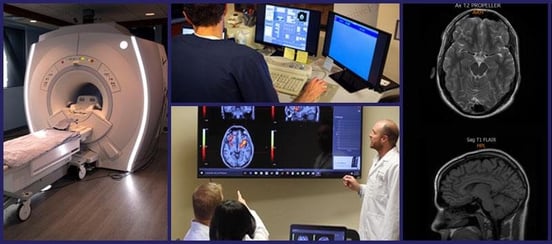
This scan is ideal for detecting the hallmark sign of brain injuries: neurovascular coupling dysfunction. In simple terms, this means the communication between nerve cells and the blood vessels that supply them with oxygen and nutrients is disrupted.
As a result, some regions in the brain become hypoactive, while others try to compensate and become hyperactive. Actions that used to be easy — such as putting a sentence together or following a conversation with friends — become harder and put more stress on the brain.
After the scan and an extensive evaluation, our team designs a customized plan for your treatment period at the clinic. During EPIC treatment (short for Enhanced Performance in Cognition), we use multiple types of therapy, including vision, neuromuscular, occupational, and sensorimotor therapy, to name just a few.
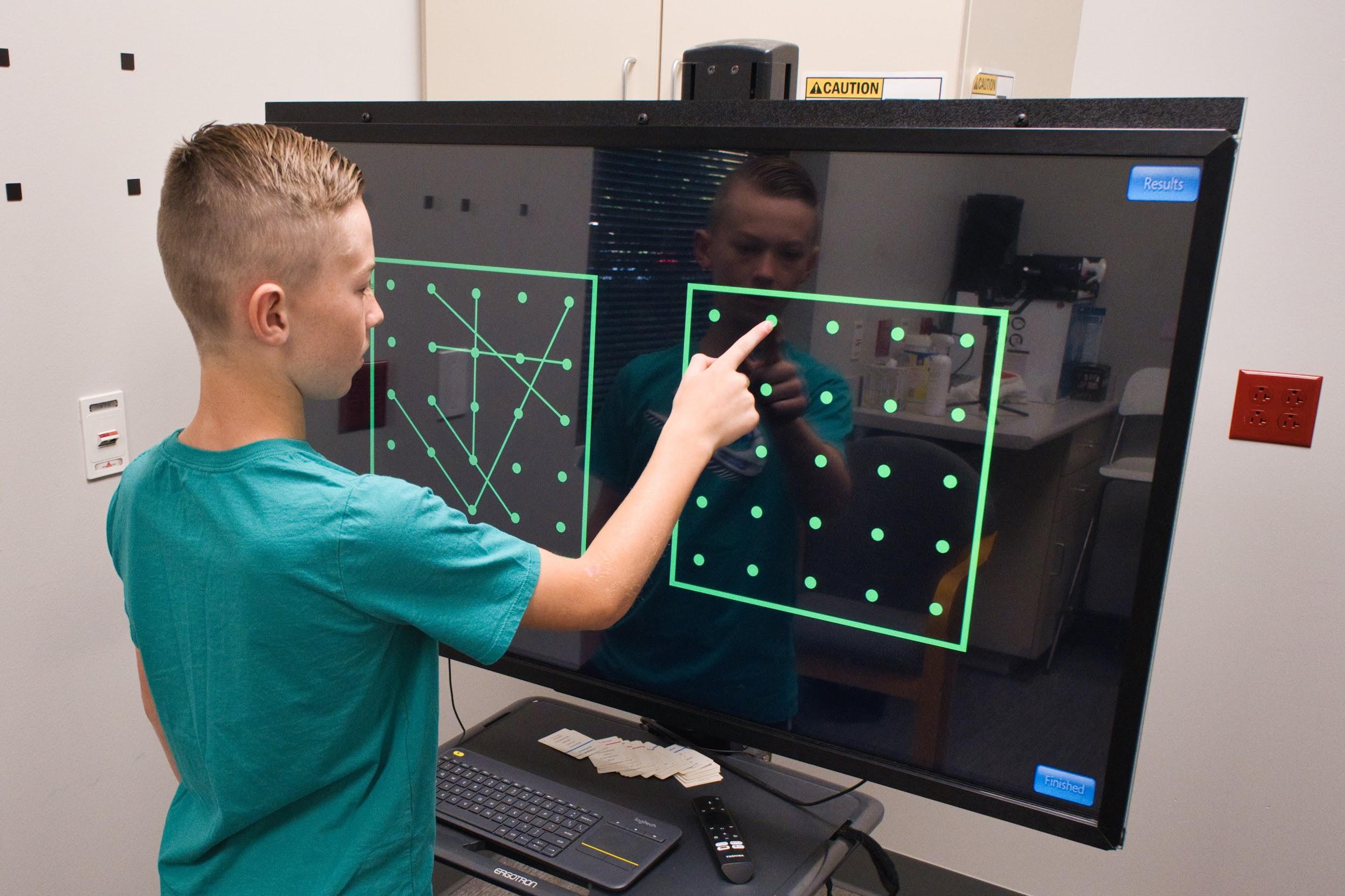
To focus on language and communication problems, patients also attend sessions of cognitive therapy. The primary target for most of our patients is to improve word retrieval, word fluency, attention, and verbal memory, but treatment is adjusted for each patient.
Rehabilitation for patients with cognitive and language issues includes exercises such as:
For patients with physical problems, like slurred speech or a stutter, the aim is to make their speech more clear with speech therapy. Therapies include exercises to coordinate lip and tongue movements; breathing techniques; and ways to increase muscle strength in the mouth, jaw, tongue, and throat. Because of the limited time we have together, our focus is primarily on cognitive improvements. We’re happy to provide referrals for patients who need more work for physical impairments after their treatment at Cognitive FX.
During these sessions, we provide a safe environment where patients can take as long as they need to complete the exercises. Even if the patient feels it’s taking a long time, we encourage them to continue at a comfortable speed.
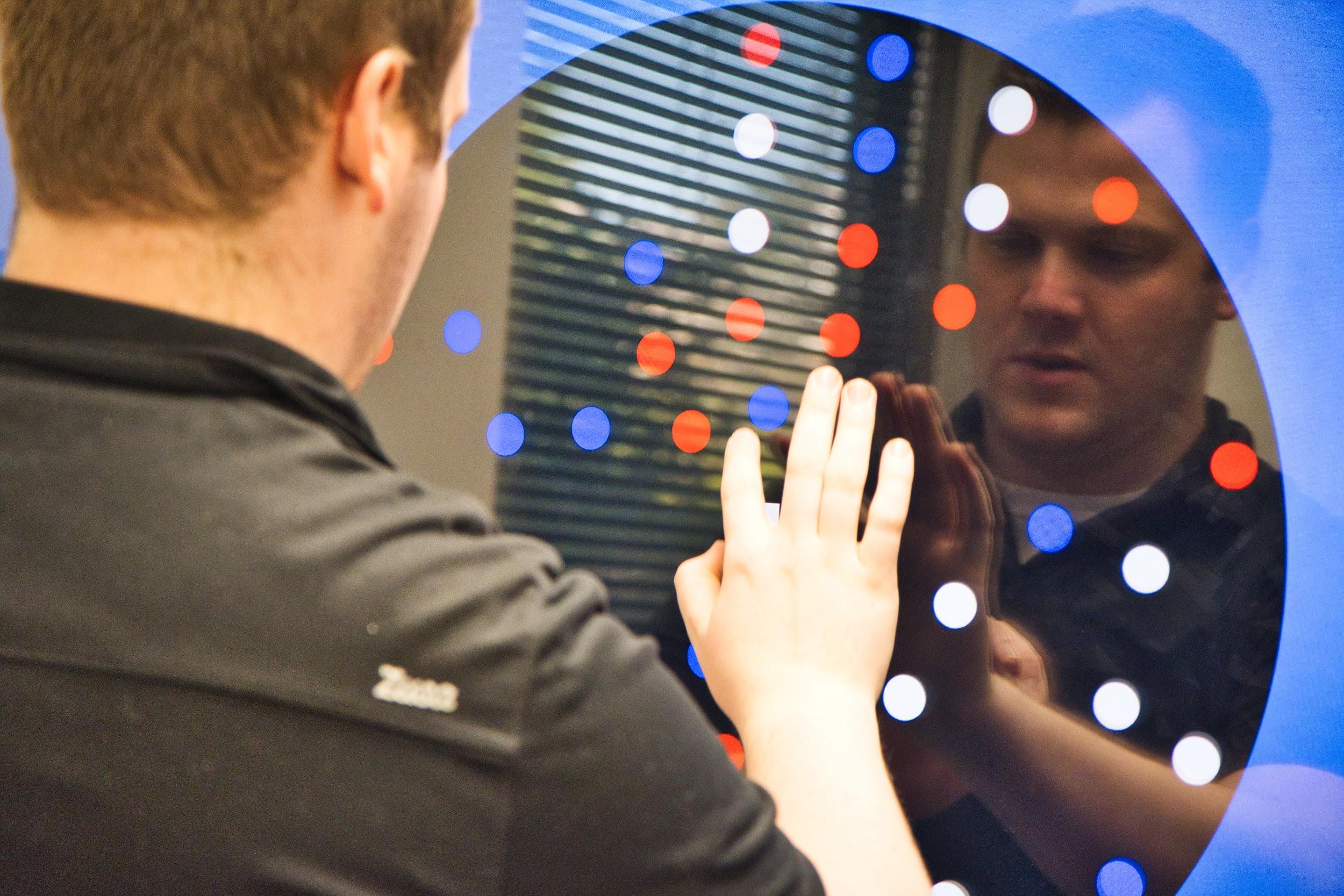
Most patients see significant improvements in one week. We can see these changes in their clarity of thought and facial expressions. Most often, patients derive the most pleasure from the small things they couldn’t do before treatment but can do again after it. Patients feel they’re making real progress.
This improvement is confirmed when they have their second fNCI scan to check the progress their brain has made. On average, we see improvements of over 75%, and if patients follow their homework instructions, they can continue to experience further improvements at home.
Want to learn if treatment at Cognitive FX is right for you? Schedule a consultation with our team.
While most patients experience significant improvements during their EPIC treatment, a minority, however, still has some lingering issues that need further consultations with a speech therapist.
We can refer you to a specialist to continue your treatment, or if you’re looking for one yourself, make sure you find one specialized in cognitive therapy after a brain injury.
Some speech therapists are used to working with patients with severe symptoms and may either be unwilling to work with you or less adept at helping you with milder symptoms. Your symptoms may be classified as subclinical, but that doesn’t mean they’re not impacting your life or that you don’t need treatment. Keep trying until you find a specialist who can treat you.
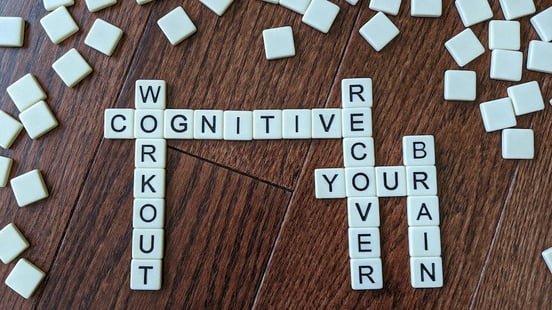
Practicing different language and cognitive exercises challenge your brain and promote the creation of new neural pathways. These new pathways can strengthen cognitive skills such as memory and attention and help you improve language skills that were affected by the brain injury.
For more ideas, check out our 17 Cognitive Exercises for Post-Concussion Syndrome You Can Do at Home.

We’re often asked if it’s okay to write information on a piece of paper or as a note on your phone. The answer is always yes; it is okay to write things down. The trick is not to use it as a crutch and look for the piece of paper as soon as you need that information. If you say, “I'm writing this down because I'll never remember,” you're setting your brain up for failure.
But if you write it down to help you remember, then it becomes a valuable tool during your recovery. When you need the information, try to remember it before you reach for the note. At first, it may not come straight away, but give yourself some time. If you really can’t remember, then you have it written down on a piece of paper, or on your phone, but just the fact that you’re trying will help rebuild areas in your brain that were affected by the brain injury.
Get into the habit of doing this with everything, such as with your calendar appointments, grocery list, and friends’ phone numbers; the more you do it, the better you get at it.
Just as a muscle gets stronger and faster with exercise, your brain also improves every time you persevere searching for that elusive word. With the right help, putting sentences together to express your ideas or being able to follow a conversation will get faster and easier.
If you’re experiencing concussion symptoms that won’t resolve after three months, you’re not alone. And you’re not crazy. On average, our patients improve by 75% after treatment at our center specializing in post-concussion therapy. To see if you are eligible for treatment, sign up for a consultation.

April has an undergraduate degree in Speech & Hearing Science from the University of Utah and a master’s degree in Speech-Language Pathology from Brigham Young University. Using almost 15 years of experience April plays a critical role in EPIC Treatment and the outcomes of our patients.

Many people associate stuttering with childhood, but a sudden onset of stuttering can also occur after a head injury. This phenomenon, known as acquired stuttering, is one of many symptoms that can...

If you’ve been struggling with lingering symptoms after a brain injury and even a mild jog is enough to trigger misery, then you might flinch at the idea of high-intensity interval training as a...

"All I remember is hearing screeching and then blackness," Anthony Loubet said as he talked about the car accident that changed his life.
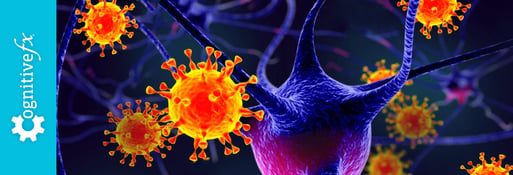
Many viral and bacterial infections are capable of affecting the brain and causing widespread dysfunction that may outlast the acute disease symptoms. Patients with long-term symptoms after viral ...
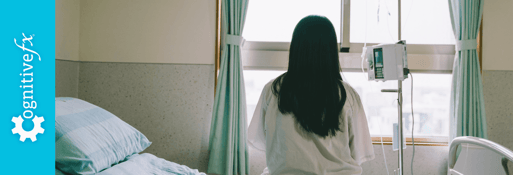
Brain injury recovery is hard. The severity of your injury, which parts of your brain were affected, and how they were affected, all factor into things such as how much you can recover and how long...

Head injuries vary wildly in severity. You could suffer anything from debilitating brain damage to a few days of feeling “off” before returning to normal. You might suffer a moderate traumatic brain...
Published peer-reviewed research shows that Cognitive FX treatment leads to meaningful symptom reduction in post-concussion symptoms for 77% of study participants. Cognitive FX is the only PCS clinic with third-party validated treatment outcomes.
READ FULL STUDY